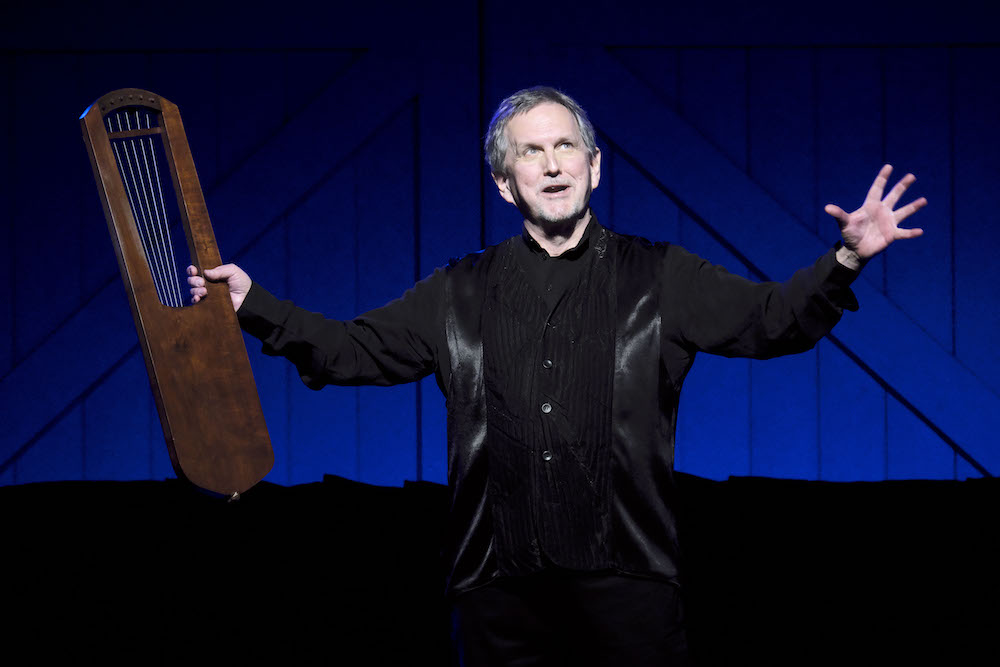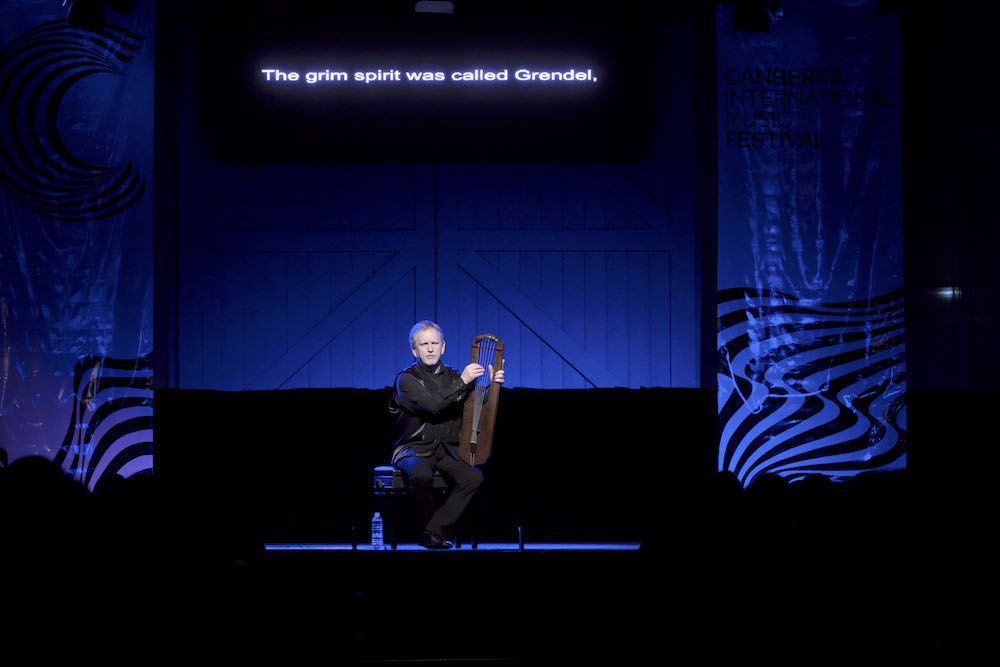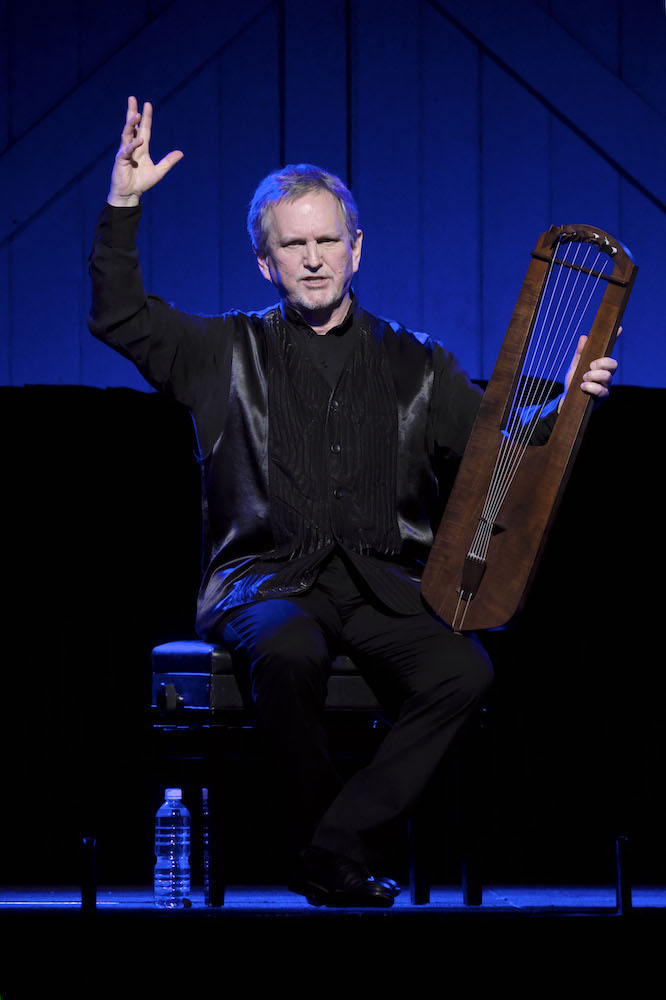Fitters’ Workshop, Canberra
May 5, 2018
“Hwaet!” bellowed Benjamin Bagby in Canberra’s Fitters’ Workshop. Six-stringed Anglo-Saxon harp in hand, the mediaevalist cried out the formal call to listen that begins the epic poem Beowulf in the Fitters’ Workshop for the 20th concert of the Canberra International Music Festival. Taking on the role of ‘scop’ – the oral poet, singer and storyteller – Bagby sung, recited and chanted his way through the first third of the epic Anglo-Saxon poem – the story of Beowulf’s defeat of the monster Grendel – in Old English and from memory, accompanying his performance on a recreation of a harp excavated from a 7th-century nobleman’s grave in Oberflacht, near Stuttgart.
 Benjamin Bagby performs Beowulf at the Canberra International Music Festival. Photo © Peter Hislop
Benjamin Bagby performs Beowulf at the Canberra International Music Festival. Photo © Peter Hislop
The one extant copy of the Beowulf text – which was discovered alongside a strange collection of fascinatingly disparate texts and in 1731 came heart-stoppingly close to being destroyed by fire – dates from the early 11th century AD but some scholars argue the poem was first penned as early as the sixth century and there is little doubt it has its origins in oral traditions.
Through painstaking research, Bagby has pieced together and reimagined a performance tradition for Beowulf, re-vocalising the epic and arriving at the tuning of his harp, for instance, through careful study of medieval modal theory and the physical evidence available. The result is a compelling glimpse of a story-telling tradition far-removed from contemporary consumption – whether through Netflix or the now strangely wizened experience of reading a physical book – but one that nonetheless grips the imagination.
 Benjamin Bagby performs Beowulf at the Canberra International Music Festival. Photo © Peter Hislop
Benjamin Bagby performs Beowulf at the Canberra International Music Festival. Photo © Peter Hislop
While absorbing the lengthy surtitles above the stage was at first a (necessary) distraction from Bagby’s telling, it didn’t take long to settle in to the rhythm of the performance. Bagby varied lyrical speech, chanting and song, in vivid characterisations that transcended the linguistic barriers. His harp, too, offering six pitches tuned modally, plucked or strummed in various combinations, created what at first felt like a rather monochromatic harmonic world, but revealed richer layers as the story unfolded and grew to become a powerful mood-enhancer. Bagby’s voice too told a story – from the desiccated king Hrothgar to the confident warrior Beowulf and the dissolute and jealous heckler Unferth. In narration, Bagby’s voice sunk to a whisper growl when he foreshadows the doom to fall on Hrothgar’s new banquet hall, Heorot.
 Benjamin Bagby performs Beowulf at the Canberra International Music Festival. Photo © Peter Hislop
Benjamin Bagby performs Beowulf at the Canberra International Music Festival. Photo © Peter Hislop
Moments of humour were deftly timed and executed, and moments of violence – the ripping of Grendel’s arm from his shoulder in lines 816-819 of the epic, for instance, “a gaping wound opened in his shoulder-joint, his sinews sprang apart, his joints burst asunder” – were rendered with such visceral brutality the performance almost needed trigger warnings.
Overall, Bagby’s rendition of Beowulf was fascinating and entertaining. If as a medium this form of story-telling doesn’t quite have the immediately engaging impact of more contemporary forms of art and entertainment (and there is no suggestion that this is Bagby’s intention), it was still a transporting experience, and – once the mind adjusted, quieted and the craving for the dopamine saturation offered by modern film and television subsided – offered a different and deeply satisfying performance experience, one for which Bagby was repaid at the end of the two hours with a standing ovation. It would be fascinating to see the marathon epic performed in full.











Comments
Log in to join the conversation.